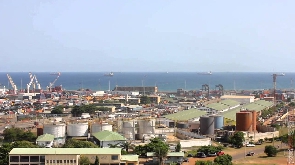For Africa to see an acceleration of its infrastructural development, it will be necessary to implement policies that will limit political pressure on procurement processes; improve integrity standards; enforce internal controls for corruption and enact monitoring schemes that will improve efficiency of projects, the Quality Infrastructure in 21st Century Africa report has advised.
According to the report which was published by the OECD Development Centre and the African Center for Economic Transformation (ACET), in partnership with the African Union Development Agency (AUDA-NEPAD), traditional business models for project development have failed to deliver the infrastructure services needed to match the dynamics of Africa’s demographic growth and urbanization, hence, the need for a new approach that will work.
Among the challenges that have impeded the smooth flow of infrastructural projects outlined in the report include disputes arising from the political process as well as the expression of vested interests by politicians or businesses; changes in political leadership which sometimes overturn previous commitment to infrastructural projects; and poor procurement practices and unfair bidding processes which are responsible for the low-quality infrastructure as well as re-bidding that may require twice the time initially planned for a project.
To address these and many other challenges, the report suggests implementing a new set of policies that will promote good practices which will limit political pressure in procurement processes and enforce internal controls that will improve transparency.
“Transcending good practices also include the insulation of regulatory bodies from political pressure that could improve their accountability to perform their mandate in a timely and predictable manner. Governments could also benefit from a project prioritisation process that targets the most pressing needs first and optimises the various sources of finance.
Regardless, governments should look to improve access to external resources, while simultaneously addressing governance and institutional development. This includes a negotiation approach with traditional development partners and China alike, focusing on advancing national development priorities, optimising financing costs, and ensuring local employment and content, as well as knowledge transfer
The procurement stage could benefit from incorporating a sound managerial system and including an inter and intra-ministerial focus on prioritising quality of infrastructure in terms of value for money, transparency and competitiveness through fair processes.
Improving integrity standards, enforcing internal controls for corruption and enacting monitoring schemes could improve efficiency of projects and avoid unnecessarily slowing down the process. Procurement can be further enhanced by training workshops and seminars for staff, as well as by the implementation of e-procurement systems,” states the report.
Commenting on the report, President Nana Akufo-Addo – whose request made during the 18th International Economic Forum on Africa held in 2O18 in Paris for a technical platform to facilitate a policy dialogue around optimising, accelerating and scaling up quality infrastructure in Africa led to the publication of this report – in a statement read on his behalf, said he finds the recommendations proffered in the report well-positioned to address the infrastructural challenges faced by Africa. He, further stressed on the need to look within the continent for solutions rather than from outside the continent.
“But to chart our own future, we need to build the requisite know-how and capacity. To develop our infrastructure, we need our own financiers, project developers and managers, engineers, lawyers, ESG experts, evaluators, and construction professionals. We, in Africa, have many world-class experts in these areas, but we do not always manage these human resources well. We need more knowledge exchange and peer learning within Africa on these topics, and I am sure this initiative will help make that goal a reality,” he said.
Also adding his comments, Founder and President of ACET, Dr. Kingsley Y. Amoako said it is important for African governments to commit to the processes and policies outlined in the report in order to ensure that infrastructural projects are finished in time for the continent to bridge its huge infrastructural deficit.
He further urged the continent’s leaders to form partnerships within the continent which will pool resources together to finance the huge infrastructural projects.
Business News of Friday, 10 July 2020
Source: thebftonline.com













